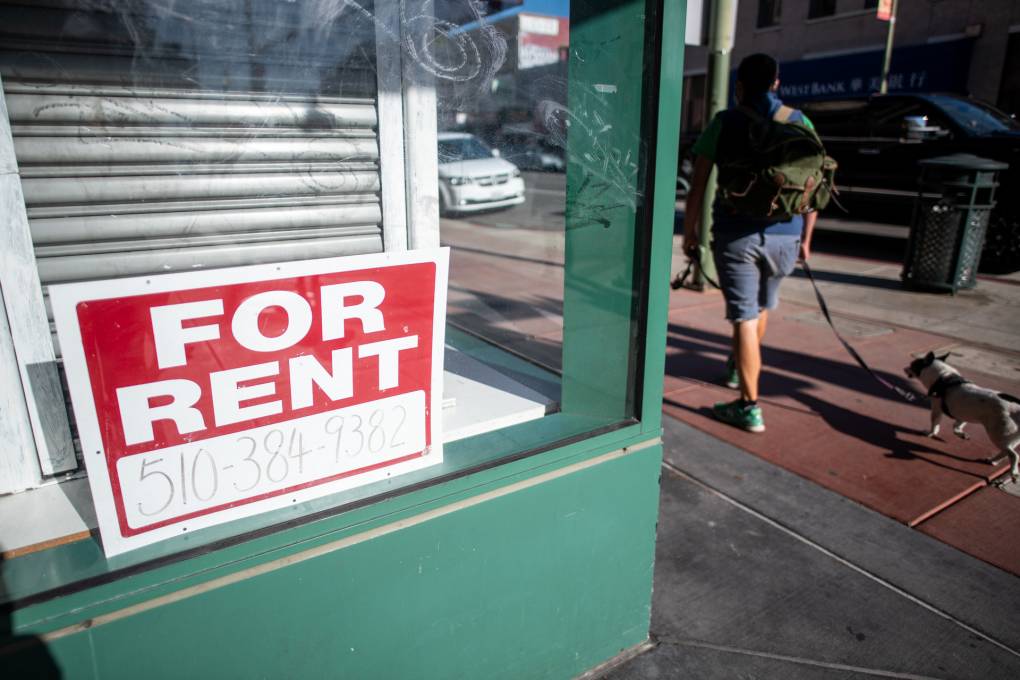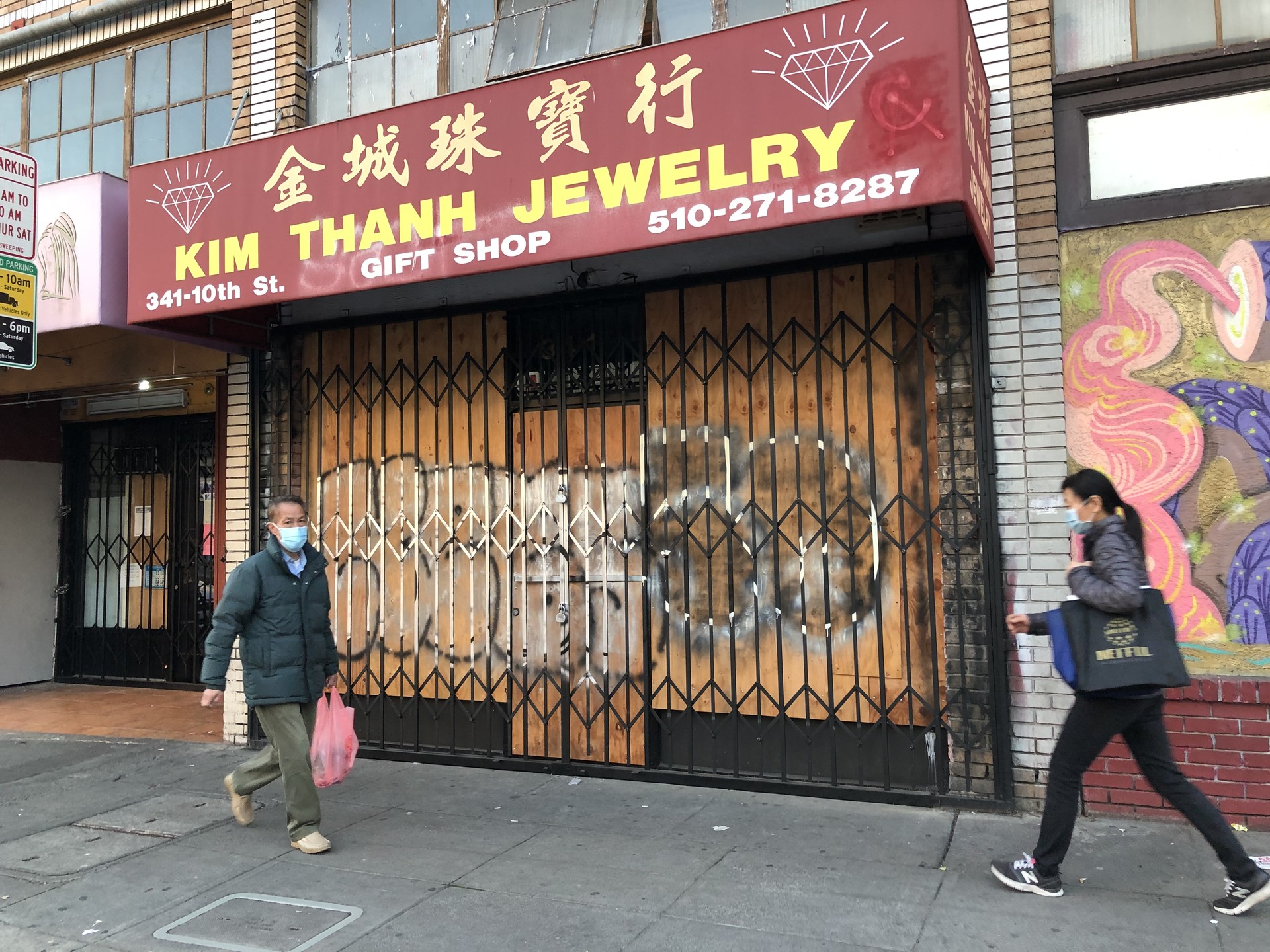Before the pandemic, dozens of shoppers streamed through 9th and Webster, a busy intersection in Oakland. But on a recent afternoon, Carl Chan marveled at the sight of nearly empty streets. Only two pedestrians lingered on a corner, waiting for the green light to cross.
“Oh my God, this is Chinatown?” said Chan, president of the Oakland Chinatown Chamber of Commerce.
Restaurants in the neighborhood were some of the first hit by the pandemic, Chan said. As early as January, Bay Area residents with Asian roots were getting word of the deadly toll of COVID-19 in China and canceled large banquets booked months in advance. Instead of shopping and gathering to celebrate the Chinese New Year, many opted to stay home.
“So even before the shelter in place, we had quite a few businesses already closed,” Chan said, standing near shuttered shops and ‘For Rent’ signs. “The impact has been huge.”
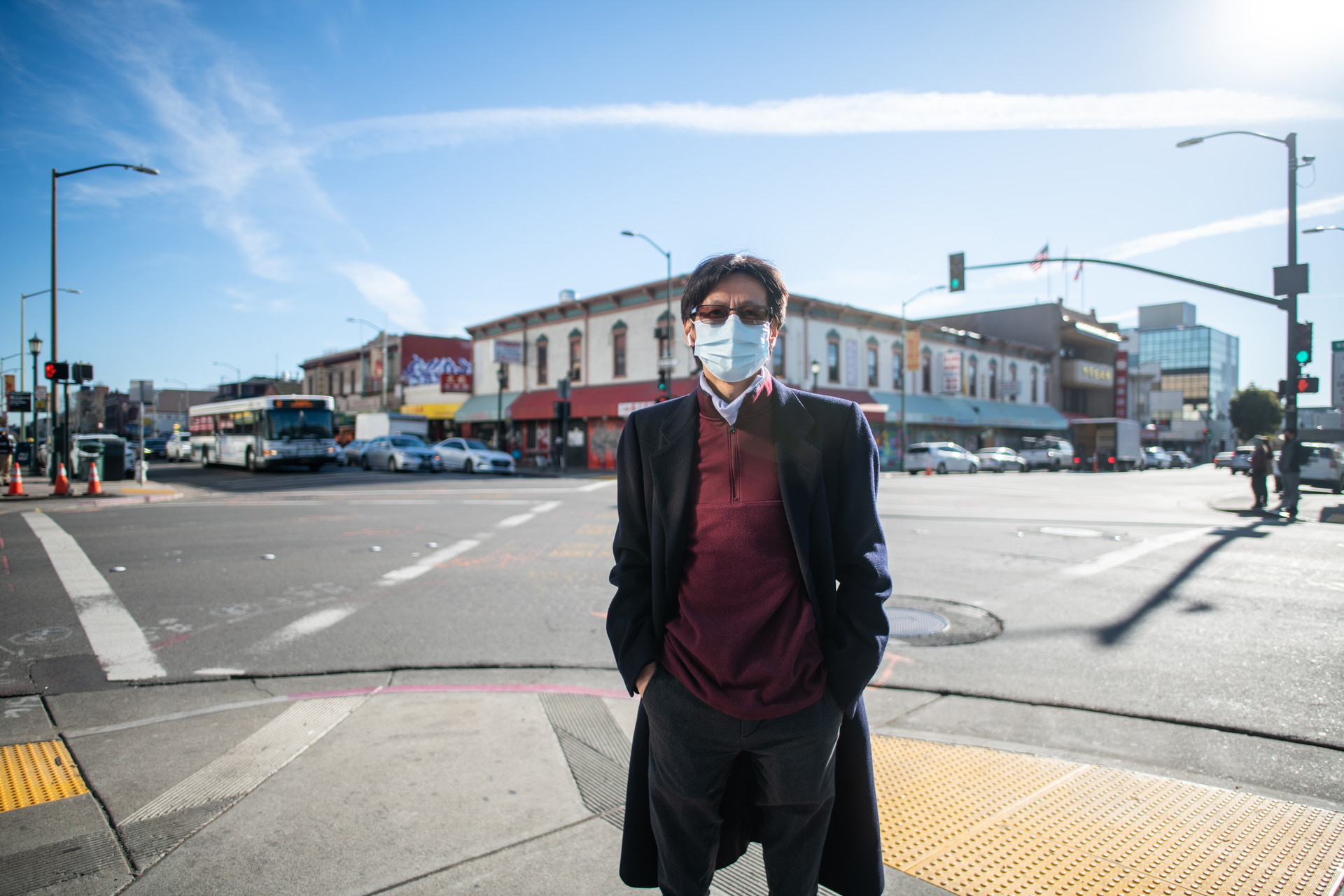
While exact figures are hard to come by, Chan says he believes more than 30% of businesses in the neighborhood have closed their doors temporarily, or for good. According to the East Bay Economic Development Alliance, close to 900 businesses in Oakland discontinued operations in the first six months of shelter-in-place restrictions.
Businesses in Chinatown have also had to contend with a drop in customers due to anti-Asian sentiment mistakenly connecting COVID-19 with all Asian people.
“It’s so hurtful,” said Chan, who has frequented the neighborhood since moving to the U.S. from Hong Kong as a teenager, and often waves to acquaintances passing by on the street. “I'm seeing so many people not only losing the business they worked so hard to build, but also, I'm seeing so many people are losing their jobs.”
For most of the pandemic, county public health orders have required Anna Bui to close Diva Nails, the nail salon she’s owned in Chinatown for 18 years. Still, she has been on the hook for $2,250 per month in commercial rent.
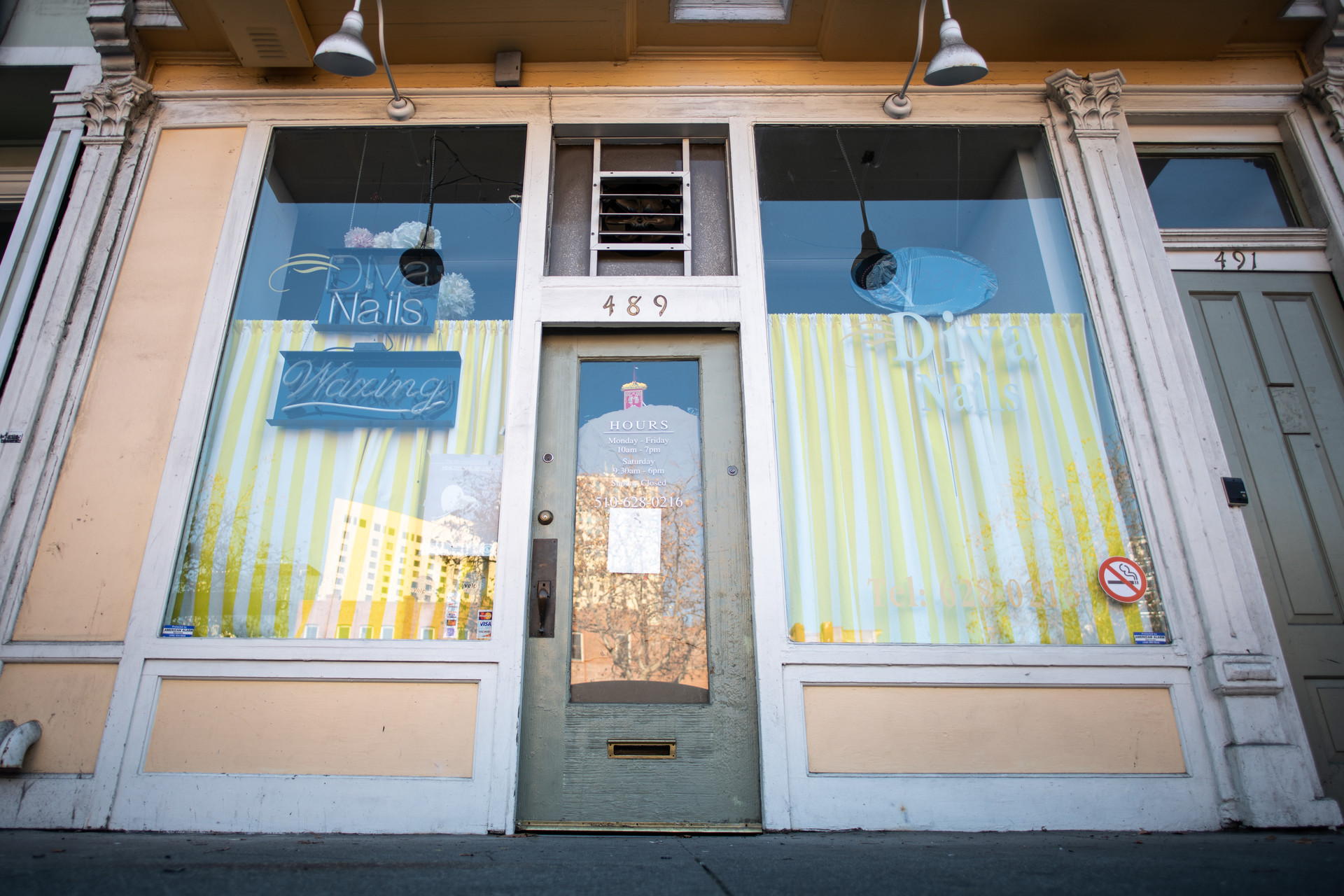
After April, Bui tried negotiating with the landlord to reduce her payments, but he he faced a mortgage bill of his own for the property, and threatened to sue her. “I’m very stressed, and often up all night worrying about what I’m going to do with my salon and my family,” said Bui, 46.
Finally, in November, Bui’s landlord agreed to offer a discount on her burgeoning debt with him, but she still owes $11,000 in back rent.
Other landlords in the neighborhood said they are working with tenants who are missing rent payments. At Pacific Renaissance Plaza, which includes 90,000 square feet of commercial space in the heart of Chinatown, several tenants have paid partial or no rent since April and May, according to Rick da Silva, principal with Loh Realty and Wellington Property, which owns and manages the property.
“When this started, we actually told our tenants here and in other locations, ‘Pay what you can. We will work all of this out,' ” da Silva said. “We view our tenants as our partners. I mean, we would not want to push anybody out.”
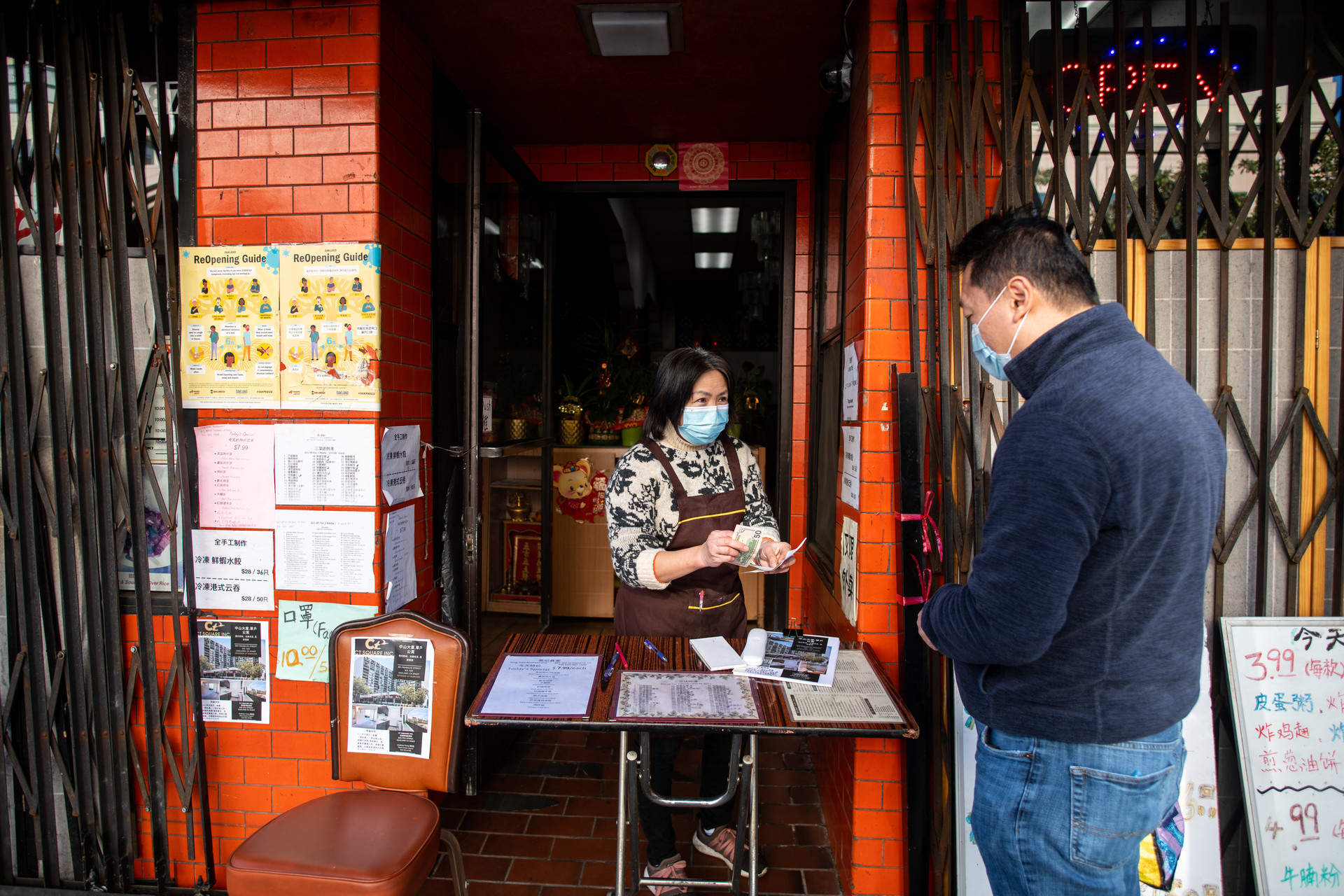
But not all landlords are as understanding, and demand for help to renegotiate commercial lease terms has shot up, said Tobias Damm-Luhr with the San Francisco-based Lawyers' Committee for Civil Rights. The organization provides free legal counseling to people of color and webinars on lease negotiation in Vietnamese, Cantonese and other languages.
“The number one tip that we give people as part of these webinars is to remember that you have the upper hand as a small business tenant in these negotiations, because the market for commercial space right now is a renter's market,” Damm-Luhr said.
